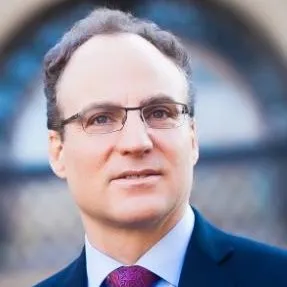Emeritus, a company focused on professional education, hired Mike Malefakis as its president of university partnerships, it said in August.
Malefakis was most recently senior advisor at the investment firm Leeds Illuminate, but he previously held leadership positions at several business schools. He was director at the University of Chicago Booth School of Business, associate dean of executive education at Columbia Business School and an associate vice dean and CEO of Wharton Executive Education at the University of Pennsylvania.
Emeritus — which is part of the business- and professional education-focused Eruditus Group — works with over 60 universities in the U.S., Europe, Latin America, Southeast Asia, India and China, providing online courses, degree programs, certificates, boot camps and executive education programs.
Malefakis recently discussed his hopes for his time at the company as well as the state of executive education, which can be a notable source of revenue for colleges and universities.
This interview has been edited for clarity and brevity.
HIGHER ED DIVE: Do you have a history working with Emeritus from your time in higher ed?

MIKE MALEFAKIS: I've known Emeritus since early days.
I was a partner of Emeritus at Columbia Business School. I joined Columbia after having been at Chicago Booth School, and came to Columbia fall of 2010. It was very clear to me that in the space we work — in the nondegree professional education space that is executive education — that we needed to be doing things online.
We were just coming out of the '08, '09 recession, and one of the first things that was slashed back in that recession was training budgets and travel budgets.
But it was clear we needed to be reaching our clients and our professional learners in new ways. They couldn't all come to New York City. They couldn't all afford, back in those days, maybe a $10,000 a week program, not including a hotel. So it seemed a natural response to what the market was signaling was that we needed to find ways to get online.
We were experimenting in-house, doing our own thing, and had some early successes, but realized we could never do this at scale with our limited resources, because at the end of the day, executive education is a profit center for business schools and universities, so we didn't have the investment capital to start something new.
We took a gamble, worked with Emeritus, worked with several others, and over time Emeritus proved to be the best partner.
And then you were at Penn for a while, correct?
I transitioned to Wharton in January 2017 from Columbia. Wharton had already been partnering with Eruditus on in-person programs in the Middle East and India but hadn't done anything online. After a year of my joining Wharton, we started a push with online and Emeritus.
You then went to Leeds Illuminate. Why join Emeritus now?
Part of my role as a senior advisor there was advising Emeritus along with other companies in our portfolio. This seems like a very natural transition, because it's part of something I believe in deeply: expanding the scope and scale of great education.
The Emeritus client list is skewed toward business schools, correct?
To date, yes. That is going to change within this year.
Where are you planning to branch out?
We're pretty convinced we're helping people boost their earning potential and professional growth. So the next segment we're really focusing on is healthcare.
It will be interesting to see how working in the healthcare space is different.
I find it interesting, too, because through the business schools I've worked in, we've done some custom programs, as we call them, for healthcare services.
But your current portfolio is tilted heavily toward executive education, correct?
That's the core that Emeritus started out with, and that's in part why we were with these exclusive schools. But it's broadened.
We're launching our very first degree with Emory University. Degrees are an area of expansion that we will be working with. The executive education is getting much broader than the traditional executive ed, which might be executives in their mid-30s to mid-40s. We have boot camps, which are oftentimes targeting a younger individual who is skilling up in a particular technical area.
And I think more and more, with the lifelong learning perspective and the ever-changing economy that we live in, bootcamps are not going to be things that people do only in their early 20s or mid-20s. It's that person who decided to do a career change in their mid-30s as well. That's a very practical way to get hands-on skills.
What else is developing in the space?
Over the past few years, there's been a big push toward something called microlearning or just-in-time learning, which serves a great function.
Emeritus is really focused much more on, I would say, deeper learning.
Typically our shorter programs are three to six months long. Our longer programs go as much as 24 months. We have professional certificates that are in that three-to-six-month range, we have something called accelerated leadership programs that are typically six months long, and then we have another portfolio area, which is senior executive programs, which can be six to 12 months.
And if I can add one observation, I started working in this industry at the University of Michigan in the '90s. Until the pandemic, everything was formatted on a weeklong course, and that's a format that works very well. But I also think in the longer term that you can go digitally — that's more modular and actually embeds learning much deeper.
Why?
Oftentimes what happens is someone goes to a weeklong course on a campus, they come back, and four months later they remember they had an amazing time. But they sort of forget the details of what they learned.
If you're learning over a four-month period, you're really embedding the knowledge, and that's powerful.






















